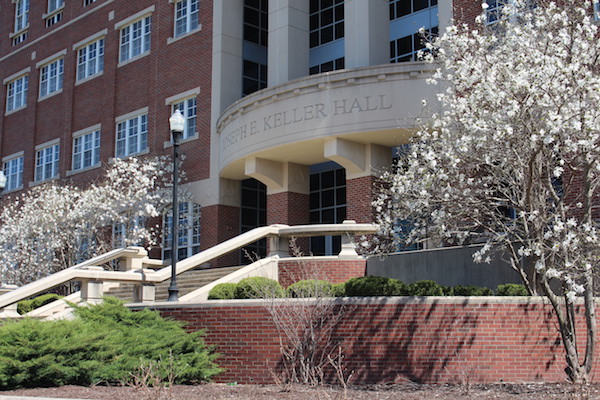President's Blog: From the Heart

Raising the Bar — and Passing It
By Eric F. Spina
“You cannot predict the future, but you can create it,” management consultant Peter Drucker once wrote.
Dean Andy Strauss and faculty in the School of Law are quietly reinventing legal education, abandoning what has long been a cookie-cutter approach to educating lawyers and teaching the law. They’ve adopted a series of curricular innovations that start and end with a *singular* purpose — student success.
Most notably, they’re concentrating their effort inside and outside the classroom on preparing students to pass the final exam that matters the most — the bar exam.
And we’re starting to see positive results: 89 percent of first-time July test takers passed the exam, surpassing the state average of 82 percent and placing us in the top three law schools in the state.
I salute Dean Strauss, the law faculty, and the first-rate team of Sheila Miller, Katie Armstrong, Tommy Sangchompuphen, Tamara Tabo, and Dan Craine who implemented a comprehensive bar passage reform program unlike any in the country.
All law schools focus on preparing students to sit for the bar, but it’s hard to imagine a more comprehensive, full-court press than what our law school has adopted. Consider:
Support. Support. Support. All students can take advantage of free summer bar housing and, when needed, private tutors, mostly adjunct professors practicing law, who test them on principles of the law that will be on the bar exam. From day one, the academic progress of each student is tracked on a dashboard, allowing for early individualized intervention from our academic support team. We’ve tripled the number of mandatory academic support courses for at-risk students to help them master core skills. Finally, we’ve transformed a two-credit, pass-fail bar review course into a three-credit, graded class that all students must pass to graduate.
Curricular Reforms. The faculty, developed and overwhelmingly adopted pedagogical changes, including revising the first-year grading system and increasing the credit hours for several foundational courses and spreading them out over four semesters instead of only the first year. Unlike other law schools, our students are now tested a minimum of three times for all the required courses, not just at the end of the semester, allowing for formative assessment and regular feedback on their progress toward mastering the concepts.
Thinking Like a Lawyer. In another innovation, we’ve established “Legal Learning Labs,” where students learn mindfulness and the mental processes lawyers must cultivate to read and analyze cases.
During a challenging time for legal education nationally, our School of Law is boldly charting a path forward by introducing one of the country’s first hybrid law degrees and offering new legal academic offerings besides the J.D., such as a master’s in government contracting and procurement law and an online patent program for Air Force engineers and scientists.
And as we’ve increased selectivity and focused squarely on student success, we’ve seen an uptick in applications. Our School of Law was one of only two in the country that enjoyed a 50 percent increase in applications for this fall’s class, according to the Law School Admission Council.
As we continue to raise the bar, I’m confident students will pass it.
